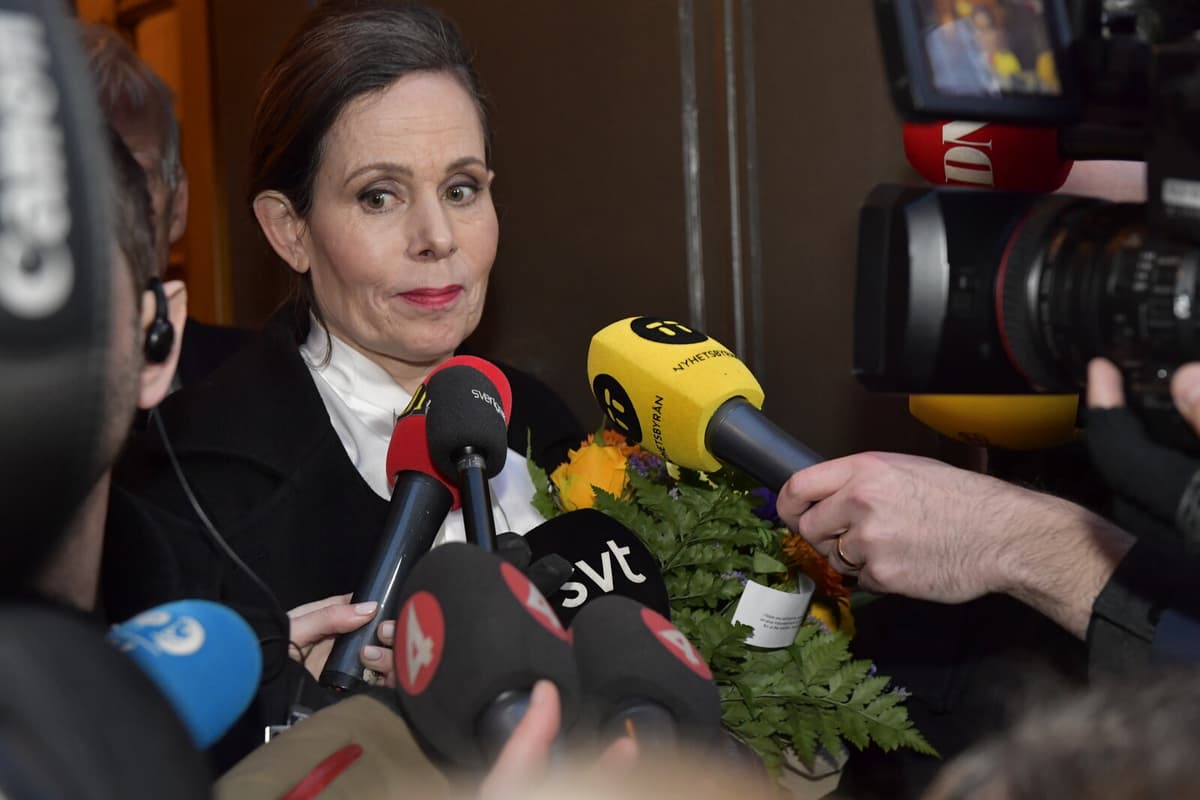In the current book "To the greatest possible benefit of humanity: Ten years with the Nobel Prize" Lars Heikensten, among other things, accounts for his view of those involved in the crisis. One of them, Horace Engdahl, belonged to the most confrontational crowd that became a black spot.
Horace Engdahl had a very strong position both in the Academy and in society. The position he took came to characterize the image of the Academy a lot, says Lars Heikensten to TT.
The crisis was completely unnecessary
As CEO of the Nobel Foundation, protecting the prize's position - all over the world - was a difficult task.
It was obvious what they should do, that is, get to the bottom of what happened and acknowledge their mistakes. Instead, they did the opposite for a long time. I do not know why some of those who dominated for a long time did what they did. But the crisis was fundamentally unnecessary.
A more nuanced picture of Sara Danius is also presented in the book. Heikensten praises her straightforward and engaged way of handling the crisis itself. But he also describes that Danius could be tough both in her role as a member of the Nobel Foundation and towards the employees, both in the foundation and the Academy.
The atmosphere was sometimes so bad that Heikensten had to come to the defense of his colleagues, he says. To improve the work environment, he had one-on-one conversations with Sara Danius.
Regrets one thing
When asked if he regrets anything or would have liked to do something differently, Lars Heikensten replies that he wishes he had succeeded in convincing the Academy to introduce a better system for rotation, similar to the other prize-awarding institutions.
More rotation would be good for the Nobel Prize work. Individual members would not become so dominant and there would be room for more thoughts.
Corrected: In an earlier version, an incorrect year was stated in a fact box.
Helena Nordenberg/TT
Facts: "To the greatest possible benefit of humanity: Ten years with the Nobel Prize"
TT
When Lars Heikensten took office as the seventh CEO of the Nobel Foundation in 2011, he looked forward to coming to a calm job after many years in exposed positions. It didn't quite become that idyllic. The foundation faced a number of challenges: the economy was in the danger zone, the new Nobel Center aroused feelings, and a prize winner turned out to be deceased.
If that wasn't enough, the scandal with Macchiarini came, and finally the big fiasco in the Swedish Academy.
In "To the greatest possible benefit of humanity", Lars Heikensten looks back on the most tumultuous years in the Nobel Foundation's 125-year history, while telling about the work around the Nobel Prize and how it has become one of the world's most well-known and respected brands that connects scientific progress, good literature, and work for human relations.
Source: Albert Bonniers förlag
In November 2017, 18 women testify in Dagens Nyheter about how they were exposed to sexual harassment and abuse by a man with close ties to the Swedish Academy. Shortly afterwards, the permanent secretary Sara Danius announces that the Academy has decided to cut all ties with the man, Jean-Claude Arnault, who in the media is called the Culture Profile.
The decision is motivated by DN's review, but also by information that members, members' daughters, wives, and staff at the Academy's office have been "exposed to unwanted intimacy" by Jean-Claude Arnault, who is also married to the academician and poet Katarina Frostenson. The economic support for his activities also ceases.
In April 2018, the crisis is a fact. After tough internal discussions, the three members Klas Östergren, Kjell Espmark, and Peter Englund announce that they are leaving the work in the academy. More withdrawals follow.
On April 12, 2018, the Academy's permanent secretary Sara Danius announces that she is resigning and at the same time leaving her chair. Anders Olsson takes over as acting permanent secretary. Two days earlier, member Horace Engdahl had criticized Danius in a debate post in Expressen. Engdahl writes, among other things, that "Sara Danius is the secretary who since 1786 has managed her task the worst".
Arnault is prosecuted for two cases of rape committed against a woman in Stockholm in 2011. He is sentenced to two years in prison for one case of rape, despite his denial. In the court of appeal, he is sentenced for two cases of rape and the penalty is increased to 2.5 years in prison.
On January 18, 2019, the news comes that Katarina Frostenson is leaving the Swedish Academy.
Sources: TT and others






